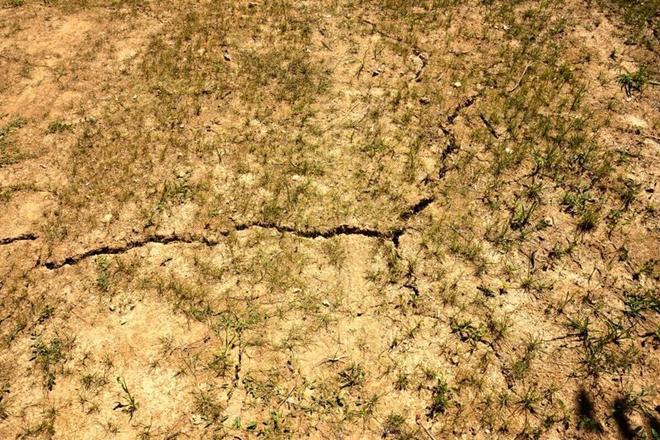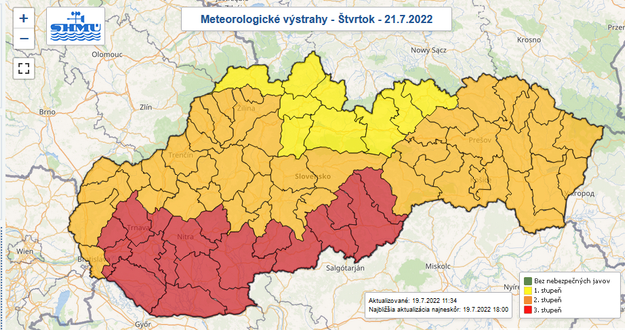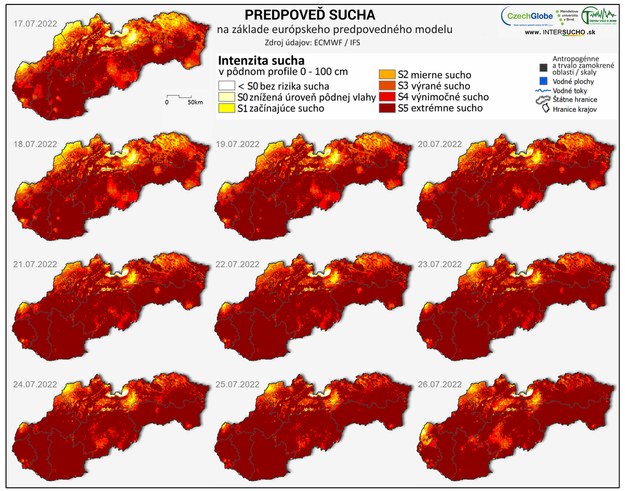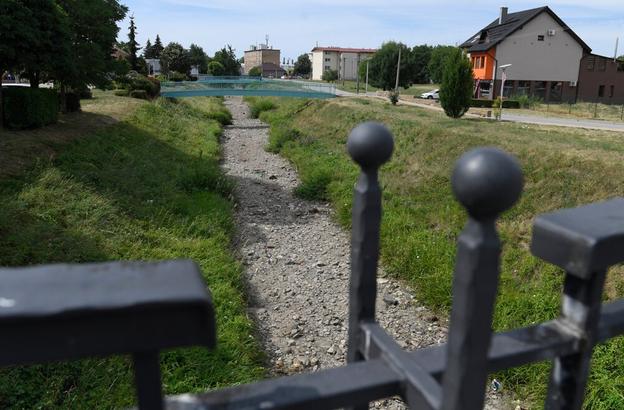Meteorologists have issued heat warnings for the next three days, from Tuesday to Thursday.
High temperatures can put people’s health and the environment in danger.
On Tuesday, the first-level warning will apply to western Slovakia and the Banská Bystrica Region. In the afternoon, temperatures there should increase to 33 degrees Celsius.
The next day, northern Slovakia will be under the same-level heat warning on Wednesday, with temperatures expected to reach as high as 34 degrees Celsius. For the rest of the country, the Slovak Hydrometeorological Institute has issued a second-level heat warning. People can be exposed to temperatures up to 37 degrees Celsius on Wednesday.
On Thursday, as the map below shows, the highest heat warning will apply to southern Slovakia. Temperatures of 38 degrees Celsius are expected.
People are recommended to drink at least 1.5 l of water a day during a heatwave.
Emergency situation caused by drought
Climatologist Pavel Matejovič has told the TASR news agency that no rain across the country is projected until the end of July. Local storms can occur.
“We are confronted with a drought every year, but this summer it has taken on catastrophic proportions, while extreme drought prevails in a third of Slovakia’s territory and is far from ending,” he said.
The extreme drought can be gradually felt in half the country, the expert added. In Banská Bystrica, the precipitation deficit has been highest in the last 90 days.
“Many areas in Slovakia will have to deal with a drinking water shortage,” Matejovič maintained.
At the start of July, the Interior Ministry declared an emergency situation in six towns: Pavľany (Prešov Region), Drňa and Chrámec (Banská Bystrica Region), and Pača, Žehra, and Bystrany (Košice Region).
Dried-up river
Part of the river Bodva, which runs through Moldava nad Bodvou, eastern Slovakia, has dried up, the TASR new agency has reported. The situation has occurred several times over the years, but never for so long.
The stretch has been waterless for several weeks, severely affecting river life.
“This is the fourth time in ten or 15 years. This has been happening since they drilled wells for drinking water,” claimed chair of the local fishermen’s club, Gabriel Greizinger.
Based on information provided by a state company that manages water courses and river basins, a similar situation on the Bodva happened in 1968, 2007 and 2012.





